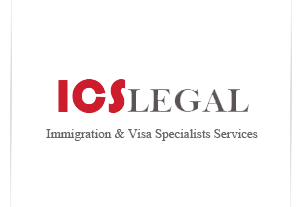As personal injury attorneys, we see a lot of car accident cases. After all, almost everyone—especially in a place like Boston—drives every day. And although we do it so often that it becomes routine, it is still a very dangerous activity. If you think about it, driving requires a decent amount of skill mixed with a significant level of trust for the people around you.
We all drive around in multi-thousand-pound vehicles, at high speeds, in close proximity to each other; it is no wonder that when someone is negligent or makes a serious mistake, the results can be disastrous. From our vast experience with car accident cases, we have compiled a list of five common car accident injuries, along with some details about how they are treated and what damages can be compensated.
Car Accident Brain and Head Injuries
Car accidents are prime suspects in the causing of TBIs (traumatic brain injury). In fact, 17.3 percent of all TBIs in the U.S. are related to motor vehicle accidents. This is because of the forces associated with sudden acceleration or deceleration. This sudden change in speed slams a person’s head into the steering wheel, dashboard, windshield, or causes the head to jerk quickly back and forth (whiplash).
Part of the reason for this is that the brain is actually suspended within the skull; for the most part, they do not touch. So when the skull comes to a sudden stop, the brain continues to move forward at the same speed the car was traveling. It only takes a tiny fraction of a second, but eventually, the brain catches up with the skull and slams into it. The effects of such an injury may be immediately apparent, such as loss of consciousness, or they may not be noticeable until some time later.
Traumatic brain injuries that result from auto accidents can have serious repercussions, such as:
- Bruising, Swelling, or Bleeding of the Brain
- Concussion
- Skull Fracture
- Penetrating Injury
- Diffuse Axonal Injury
- Recurring Traumatic Brain Injury
After a traumatic brain injury, emergency and follow-up care are mandatory. The brain is the most important organ in the human body, so it stands to reason that brain injuries can create a lot of problems in the body’s functioning. Because of this, they should be taken very seriously, even if it only seems minor at first. If you hit your head in a car accident (or even you don’t, but the impact was significant) you should seek emergency treatment.
If you do suffer a TBI, initial treatment will be focused on assessing the extent of the injury and stabilizing any life-threatening conditions. Doctors will want to make sure that blood pressure, oxygen, and blood supply to the brain stay at safe levels. Once a TBI patient has been stabilized, the next step will always be some type of brain scan; the doctors will want to have a detailed looked at what is going on inside the brain.
After a TBI patient is stabilized and has potential complications controlled, they can still face a long road to recovery. Brain injuries and their after-effects can often cause symptoms that limit a victim’s ability to engage in even the most basic of tasks or activities. TBI patients often face unique difficulties at work, while attending school, comprehending instructions, or engaging in communications with others. To help victims acclimate back to everyday life and relearn how to perform basic skills, many TBI patients go through rehabilitative treatment to help them re-learn certain tasks.
Car Accident Back and Neck Injuries
Like traumatic brain injuries, car crashes often cause back and neck injuries for similar reasons. The sudden deceleration or acceleration is brutal on the sensitive structures of the spine. The spine and neck are designed to both be flexible and provide stability. Because of the spines flexibility, sudden movement can cause the spinal to move widely, often damaging it. On the contrary, the spines rigidity causes resistance to sudden movement; this conflict then causes its own set of problems.
Common back and neck injuries after a car accident include:
- Whiplash – jerk or jolt to the neck
- Cervical fracture – 1 or more of the 7 cervical vertebrae bones in your neck
- Neck or back strain
- Herniated discs – annulus fibrosus (outer portion) of the vertebral disc is torn, enabling the nucleus (inner portion) to herniate or extrude through the fibers.
- Fractured vertebrae – bone tissue of the vertebral body collapses
- Other Spinal Disc Injuries
Back and neck injuries can cause a lifetime of lingering pain and/or a disability. Because they can be so disabling, these types of injuries can interfere with the ability for someone to work and do other tasks.
An attorney will factor in the cost of any permanent disability, such as lost wages or opportunities, along with the cost of treatment, into a settlement for your car crash-related back or neck injury.
Treatments for back and neck include any combination of pain medication, stabilization using a brace or collar, muscle relaxers, cortisone shots, and/or surgery.
Car Accident Spinal Cord Injuries
Spinal cord injuries are among the most serious car accident injuries. The spinal cord is imperative in the movement of almost every body part. Damage to the spinal cord can possibly cause major loss of function, loss of sensation, and also paralysis; it can be extremely disabling.
These injuries happen when displaced pieces of bone, disc fragments, or ligament bruises or tears make contact with the spinal cord. When this occurs, it damages the nerve cells that transmit signals to and from the brain and body. Spinal cord injuries are probably one the most expensive auto accident injuries to treat because they often require surgery, assistive devices, and ongoing rehabilitation. A 2007 Journal of Spinal Cord Medicine study reported that first-year injury costs for SCI range from $218,504 to $741,425. Notice that those figures are just for one year.
The annual costs after that are also significant. The same study found the following annual recurring costs for patients living with SCI:
- $27,568 for paraplegia
- $54,500 for lower quadriplegia
- $132,807 for upper quadriplegia
Even after you seek emergency medical attention for a spinal cord injury, they can leave you with years of needing to take medications, having surgeries, and attending rehabilitative therapy. If your spinal cord injury cannot be fully corrected, you may have a permanent disability that can keep you from working or even from conducting everyday activities. This can require extensive costs and have significant effects on you and the lives of your family members.
In many instances, SCI victims are unable to provide financially for themselves and their families, so it is extremely important for people in this situation to obtain the largest settlement possible. The compensation that people receive in SCI cases often ensures financial stability and access to medical care and treatment indefinitely. Additionally, patients can receive coverage of their medical bills, lost wages and benefits, loss of enjoyment of life, permanent disability, physical pain and suffering
, emotional trauma, and more.
Car Accident Facial Injuries
Injuries to the face can occur in car accidents due to the face making contact with the steering wheel, airbag, windshield, side window, dashboard, or broken glass. Minor facial injuries might include bruises and scrapes, while more serious injuries might include fractures, deep cuts/lacerations, dental injuries, and jaw damage.
The most common types of facial injuries are:
Lacerations – A cut, deep scrape, or puncture to your face. Because of the soft nature of skin, lacerations are common in even the most minor of car accidents. A more serious laceration occurs when a piece of the vehicle or a bone punctures or lacerates the skin. The bone may come out through the skin or mouth; or a foreign object, like glass, may pierce the skin.
Bruises – Caused by a tear or rupture of the small blood vessels under the skin. They are often not serious injuries, but they can be painful until they heal.
Broken bones of the face – Damage and breakage to the bones in the face is not uncommon in car accidents with significant impact. Just like any other bone in the body, the bones that make up the face and skull are susceptible to breaking. This can require just time, or serious surgery, to repair.
Dislocated jaw – Occurs when the lower mandible is pulled apart from one or both of the joints connecting it to the base of the skull. This can be seriously painful. It may heal on its own once put back into place or could require significant surgery.
Treatment for facial injuries depends on their seriousness. Some injuries, such as scrapes, might require only basic first aid, while others may require anything from sutures to plastic surgery. Disorders of the teeth and jaw may require mouth guards, dental work, or dental reconstruction.
Car Accident Psychological Injuries
Even if no one is seriously physically injured in a car accident, they are often very traumatic for the people involved. Not surprisingly, psychological problems are among the more common car accident injuries suffered by victims. Of course, one does not have to avoid physical injuries to suffer psychological ones. In fact, when serious injuries are involved, the emotional and mental trauma is often much greater.
Psychological injuries might include:
Short or long-term emotional distress – The emotional effects of an accident are often overlooked, especially if there are physical injuries to tend to. Depending on the severity and type of emotional injury, they can have just as serious of an effect on a car accident victim as physical injuries and the effects may even last longer if not treated.
Anxiety – After a serious car accident, whether injuries were involved or not, victims can experience varying levels of anxiety. This can range from discomfort while riding in a vehicle to extreme panic attacks when revisiting the scene of the incident.
Depression – When a victim experiences lasting physical pain and trouble performing what used to be common tasks, it can take its toll on their emotions. For this reasons, victims of serious car accidents and injury can often experience significant bouts of depression.
Post-traumatic stress disorder (PTSD) – This disorder can develop after any type of major trauma that involves harm or the threat of harm. Although most people don’t think about it unless it happens to them or someone they know, car accidents fit the bill as a highly traumatic event. In fact, research has indicated that about 9% of car accident victims develop PTSD.
Treatment for these types of injuries usually includes behavioral therapy and cognitive therapy in the combination with medications. These treatments work best when also combined with treatment for the physical injuries (since lingering pain can be a major contributor).
If left untreated, psychological injuries can become chronic and start to seriously interfere with a person’s daily life. It is important that anyone suffering from emotional or psychological issues after an accident seek prompt and comprehensive treatment; taking care of your mental health is every bit as important as taking care of your physical health.
If you have been involved in an automobile accident in Boston, call our Boston Car Accident Lawyer for free consultation to discuss your case.



